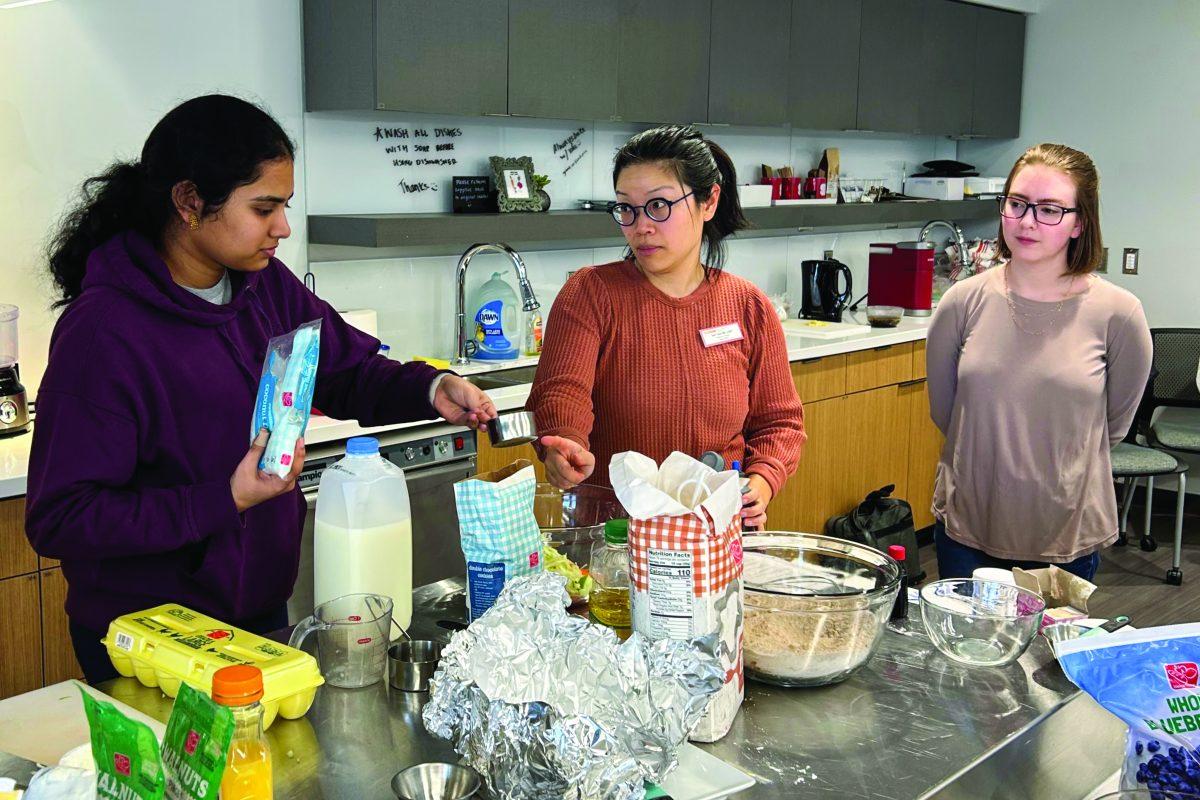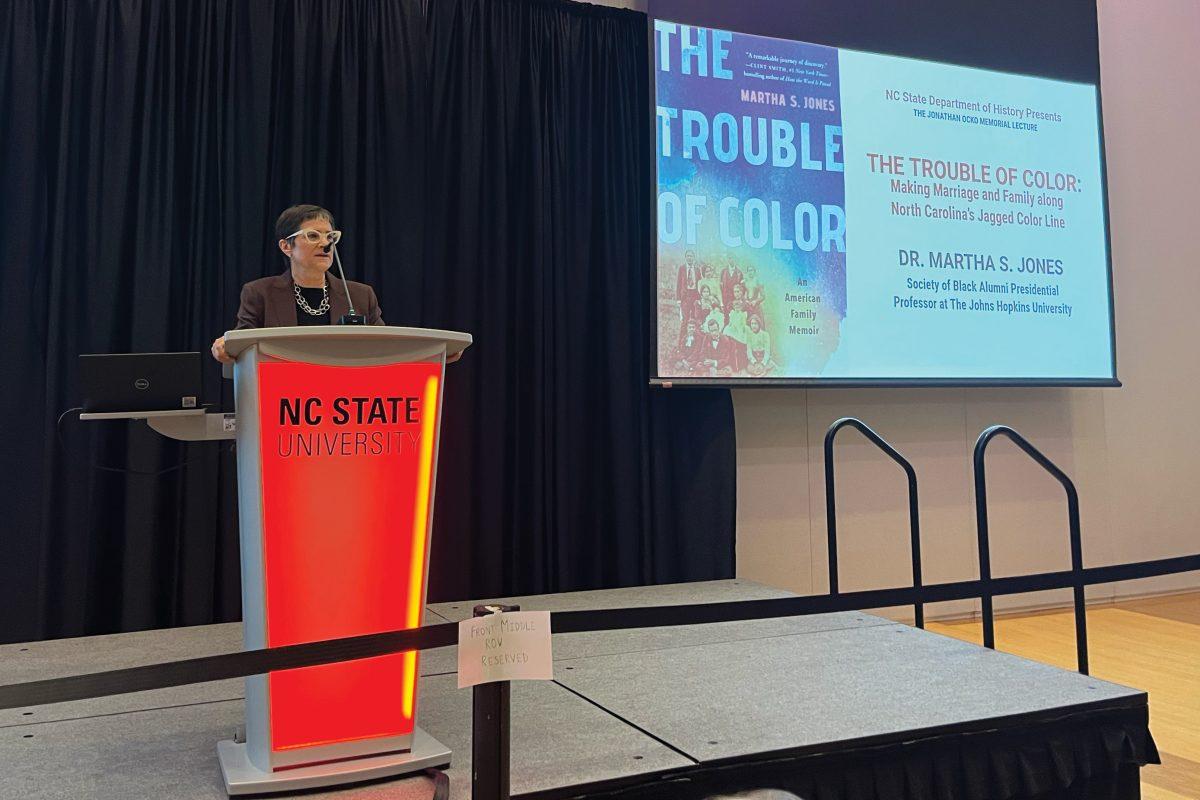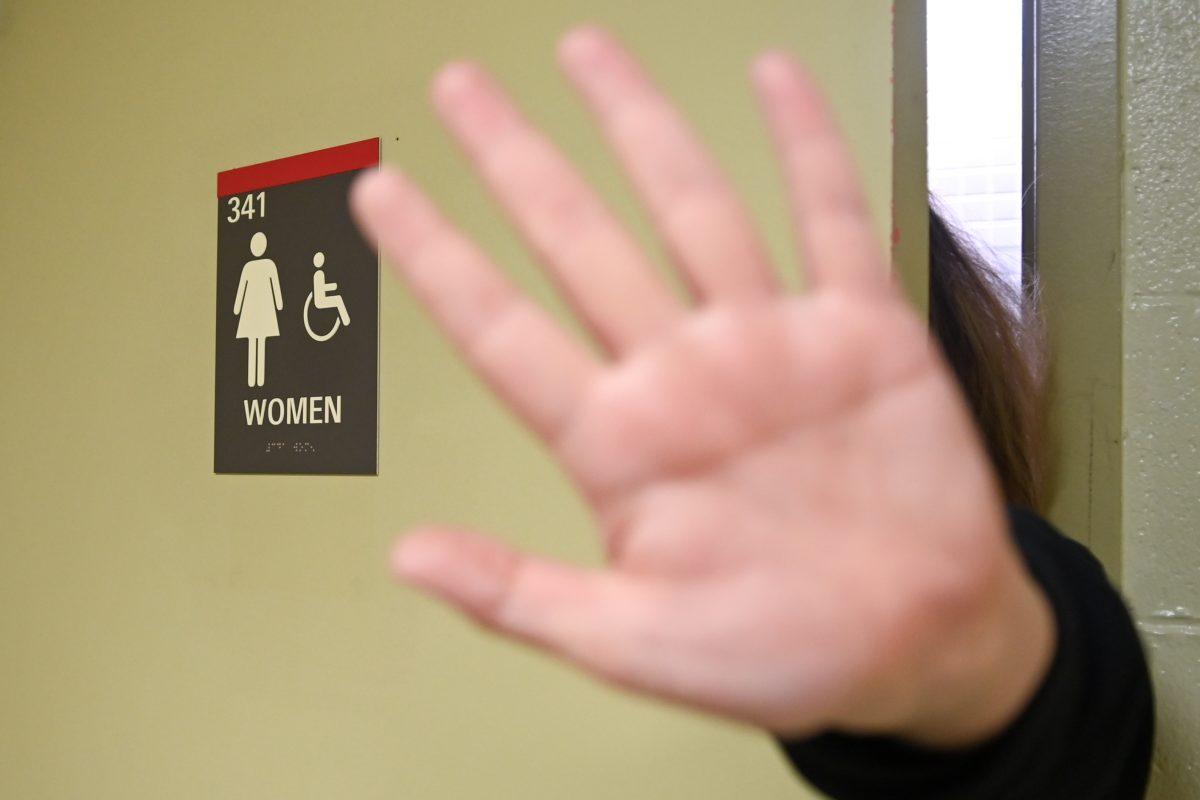Editor’s Note: A previous version of this article misstated the name of NC State Dining, organizations NC State Nutrition has partnered with and the origins of the kitchen. The information has since been corrected.
NC State’s teaching kitchen in Carmichael Recreation Center recently hosted a meal-prepping class on Jan. 7, demonstrating how to craft meals ahead of classes. The event showcased the kitchen’s role in educating students about essential life skills while highlighting NC State’s broader nutritional services.
Destiny Hill, nutrition and event coordinator for NC State Dining, said the kitchen was intended to be used by NC State Dining staff to learn and train together. While still used in that capacity, it has also evolved to be an outreach tool to teach students about nutrition and cooking.
“We wanted to start collaborating with student organizations and show them that dining exists outside of the dining halls,” Hill said. “Students can learn how to cook a meal, how to meal prep, how to make different cultural foods and how to support their health and well-being through food.”
The kitchen, equipped with TVs and recording equipment alongside necessary cooking appliances, provides an accessible place for students and staff to learn.
“We facilitate classes that show how to use stuff like your microwave or your stovetop to make elevated meals, or how to pretty much ball on a budget, get as much as you can and create nice recipes with little to no money as well,” Hill said.
Soo Uhm, a Campus Health dietitian, created the program. Uhm taught the meal-prepping class and walked a rotating group of students through the process of baking breakfast muffins; a nutritional, cheap and freezable option. She used multiple recipes for multiple batches, explaining the benefits of certain ingredients, budget options and add-ins that she loves, like seasonal fruits and nuts.
Uhm said that nutrition can seem like a daunting topic, especially for young people learning to function independently, which is why education in the area is important.
“We always like to do these drop-in sessions because then people can learn about us or learn a new skill — it’s these easy entry points,” Hill said. “Budgeting is hard. Meal prepping is hard. Creating a schedule, finding time to eat. So we’re really trying to find those little places where it’s cost-effective, easy-ish and just reasonable for college students.”
Anna Adom, a graduate student studying electrical engineering, already meal preps. She said that by cooking for only two hours, she can have her meals prepared for the entire week, which is essential for her busy schedule.
“Classes are really rigorous and very time-consuming,” Adom said. “Getting [my cooking] out the way and being able to separate the meals and get them all prepared for me is great.”
When Uhm is not doing one-on-one nutritional counseling, she is hosting outreach events in the teaching kitchen. If they are not for a specific class or a general drop-in, they are requested by and for a specific organization.
Uhm has worked with numerous on-campus organizations such as the Pride Center and is planning an event with the Ultraviolet club, which serves sapphic individuals. She has also worked with TRIO, which caters to low-income students, and the Feed the Pack food pantry. NC State Nutrition has done events for first-generation students, Latinx Heritage Month, Eating Disorder Awareness Month and more.
“It’s really about finding those groups that might be under-resourced, and that way we can partner with them and give them what they’re looking for,” Uhm said.
There are other groups who benefit from nutritional and cooking training, like new personal trainers and students in ROTC. Uhm said she sticks to basic skills training because of the range of people she teaches. Depending on what kind of course or club is being hosted, people can range from a group of confused freshmen learning the basics to some graduate students needing budgeting help.
“It’s sometimes surprising what people don’t know,” Uhm said. “I always have to ask, do you know how to use a knife? Do you feel safe? Are you happy, or even comfortable, in a kitchen or is it the worst experience ever? It’s all about approachability.”
Alongside one-off classes, NC State Campus Health offers nutritional counseling services, for general healthy eating recommendations, but also specific health conditions or eating disorders. Every student gets two nutrition visits every academic year as a part of their student fees, Uhm said.
“The earlier we can learn good habits for our health, it makes it more seamless,” Uhm said. “As an adult, life becomes even more challenging and more stressful and there’s more responsibility. We’re just building that framework.”
The NC State teaching kitchen schedule and reservations for events can be accessed through NC State Dining’s website.












